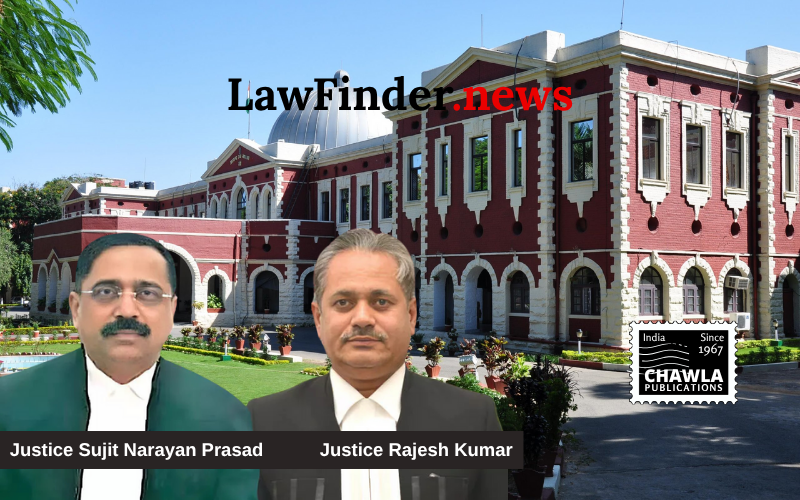The Court emphasizes the need for credible evidence and proper authentication of electronic records in matrimonial disputes.
In a significant ruling, the Jharkhand High Court upheld the dismissal of a divorce petition filed by Prakash Bari against his wife, Poonam Champia. The Division Bench, comprising Justices Mr. Sujit Narayan Prasad and Rajesh Kumar, confirmed the Family Court's decision, which found insufficient evidence to establish the allegation that Champia had entered into a second marriage with one Dura Munduiya.
The petitioner, Prakash Bari, sought the dissolution of marriage on the grounds that his wife had allegedly solemnized a second marriage without obtaining a divorce. The Family Court had dismissed the petition, citing a lack of cogent evidence, including contradictions in witness statements and absence of corroborative proof. The High Court's judgment reiterated the necessity of reliable evidence in marital disputes, highlighting the importance of procedural safeguards when dealing with electronic evidence.
The case involved the submission of a pen-drive alleged to contain proof of the second marriage. However, the court emphasized the requirement of a certificate authenticating electronic evidence under Section 63 of the Bharatiya Sakshya Adhiniyam, 2023, corresponding to Section 65B of the Evidence Act, 1872. The absence of such a certificate and verification led to the rejection of the electronic evidence.
The judgment also discussed the flexibility of evidence admissibility in family courts, as provided under Section 14 of the Family Courts Act, 1984. While the courts may receive evidence not strictly admissible under traditional evidence laws, the authenticity and genuineness of such evidence must be thoroughly assessed to prevent miscarriage of justice.
The High Court's analysis underscored the discrepancies in the testimonies presented and the lack of credible evidence to support the allegations. It further noted the procedural deficiencies in the handling of electronic evidence, leading to the court's decision to uphold the Family Court's dismissal of the divorce suit.
This ruling serves as a reminder of the stringent requirements for evidence authentication in legal proceedings, especially in cases involving electronic records, and reinforces the judiciary's commitment to fair trial standards.
Bottom Line:
Family Courts Act, 1984 - Section 7(1) explanation (b) - Dissolution of marriage - Allegation of second marriage by respondent-wife - Requirement of evidence to prove allegations including electronic evidence subject to compliance with legal provisions under Bharatiya Sakshya Adhiniyam, 2023 - Strict adherence to procedures for electronic evidence mandated under Section 63 of Bharatiya Sakshya Adhiniyam, 2023 (Corresponding to Section 65B of Evidence Act, 1872).
Statutory provision(s):
- - Family Courts Act, 1984 - Section 7(1) explanation (b), Section 14
- - Bharatiya Sakshya Adhiniyam, 2023 - Section 63
Prakash Bari v. Poonam Champia, (Jharkhand)(DB) : Law Finder Doc Id # 2795376




